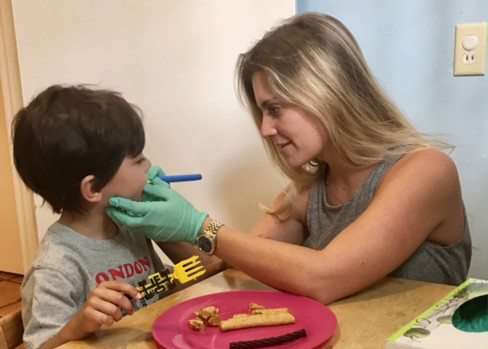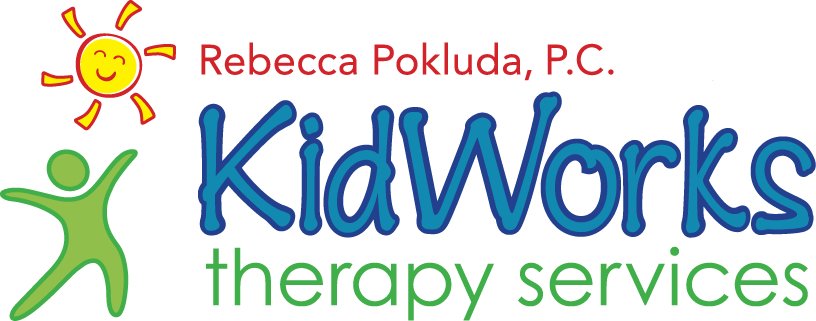
Myofunctional therapy is an exercise-based treatment. We teach our clients (children, teenagers, and adults) exercises that relate to tongue placement, breathing, speaking, chewing and swallowing.
Our goal is to teach awareness of the oral and facial muscles. We want the tongue to rest in the right place and the mouth to stay closed. When these two things happen, troublesome symptoms disappear and the big picture problems around braces, speech, jaw pain, sleep apnea, swallowing and chewing become much easier to treat.
You or your child might benefit from myofunctional therapy if you have any of the following issues:
Breast and Bottle Feeding
- Difficulty latching and/or slow feeding.
- Mother experiences pain while baby nurses.
- Gassiness; fussiness; “colicky baby.”
- Treatment for gastroesophogeal reflux disease, yet to be confirmed via testing.
- Fatigue, resulting in falling asleep at the breast.
- Discomfort for both baby and mother, resulting in shorter feedings.
- Need for more frequent feedings around the clock.
- Poor coordination of suck, swallow, breathe patterns.
- Inability to take a pacifier.
Spoon and Finger Feeding
- Retraction of tongue upon presentation of the spoon.
- Inadequate caloric intake due to inefficiency and fatigue.
- Tactile oral sensitivity secondary to limited stimulation/mobility of tongue.
- Over-use of lips, especially lower lip.
- Difficulty progressing from “munching” to a more lateral, mature chewing pattern.
- Presence of a jaw shift during chewing
- Tongue restriction may influence swallowing patterns and cause compensatory motor movements, which may lead to additional complications, such as “sucking back” the bolus in order to propel it to be swallowed.
- Possible development of picky, hesitant or selective eating because eating certain foods is challenging.
- Gagging and subsequent vomiting when food gets “stuck” on tongue.
- Secondary behaviors to avoid discomfort that are thus protective in nature, such as refusing to sit at the table or being able to eat only when distracted.
Oral Hygiene and Dentition
- Dental decay in childhood and adulthood because the tongue cannot clean the teeth and spread saliva.
- Lateral or open bite.
- Drooling.
- Messy eating.
- Requiring frequent sips of liquid to wash down bolus.
Other Issues:
- Have an anterior/posterior tongue tie, a lip tie or a revised or relapsed tongue tie
- Snoring or other difficulty sleeping
- Chronic fatigue
- Open mouth breathing
- Difficulty saying sounds like “s,” “z,” “t,” “d,” “n,” “sh,” “ch,” “l” and “r”
- Chronic stomach aches, burping, or hiccups
- Forward head posture
- Chronic headaches
- Noxious oral habits such as thumb or finger sucking, nail biting, lip licking or hair chewing
- Temporalmandibular joint pain (TMD)
